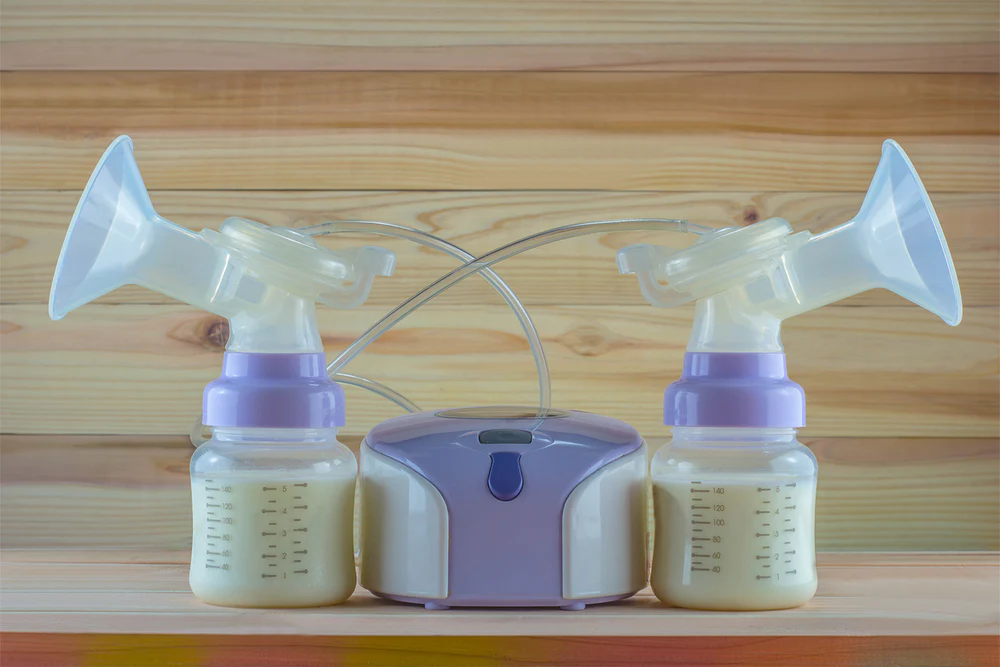Let’s chat about something that most of us go through but don’t talk about enough: anxiety and stress during pregnancy. Yup, those pesky little feelings that pop up right when you’re supposed to be glowing.
First off, let’s get real. Pregnancy is hard. Between the morning sickness that can last all day (who named it morning sickness anyway?), the never-ending doctor’s appointments, and the unsolicited advice from everyone who’s ever met a pregnant person, it’s no wonder your stress levels are through the roof. But fear not, we’ve got some tips to help you manage that anxiety naturally and keep your cool.
Understanding Stress During Pregnancy
Let’s get real about stress during pregnancy. You’re dealing with a cocktail of hormones, a growing belly, and the joy of discovering you can’t see your feet anymore. Adding stress to the mix can feel like the universe is playing a cruel joke. But understanding it is the first step to managing it.
What is Stress During Pregnancy?
Stress during pregnancy is that nagging feeling of being overwhelmed, anxious, or just plain frazzled. It’s like your brain decided to throw a little extra chaos into the mix of morning sickness, cravings, and constant bathroom trips. Hormones are going wild, your body is changing, and your mind is racing with a million thoughts about the future. Sound familiar?
The Impact of Stress on Pregnancy
Here’s the deal: a little bit of stress is normal and can even be motivating. But chronic, high levels of stress? Not so much. When you’re constantly stressed, your body releases stress hormones like cortisol, which can have some not-so-fun effects on both you and your baby. It can lead to issues like high blood pressure, trouble sleeping, and even preterm labor. Your baby can feel the stress too, potentially affecting their development.
Why Managing Stress is Crucial
Managing stress isn’t just about making you feel better (though that’s super important!). It’s about creating a healthy environment for your baby to grow in. Think of it like this: if you’re calm and happy, your baby is more likely to be calm and happy too. Plus, managing stress helps you stay on top of your health, which means fewer complications and a smoother pregnancy overall.
So, let’s take this stress monster down together. You don’t have to do it alone. Reach out to your support system, take time for self-care, and remember to breathe. One step at a time, you can manage this.
Ways to Manage Stress in Pregnancy
First off, let’s embrace the power of breath. Deep, mindful breathing is like hitting the reset button on your brain. Inhale through your nose, hold it, and exhale slowly. Repeat a few times, and feel the tension slowly subside.
Next up, get moving. I know, I know—the last thing you might want to do when you’re carrying around an extra human is exercise. But even a short walk can do wonders. Prenatal yoga is a game-changer, too. It’s like stretching with a purpose, and it helps release all that pent-up tension.
Connecting with your tribe is another lifesaver. Find your support system, whether it’s a mom group, best friends, or an online community. Talking about what you’re going through is incredibly therapeutic. Sometimes, just venting about how your feet have disappeared can make you feel a whole lot better.
Nourishing your body and soul is crucial. Eating well isn’t just for the baby; it’s for you too. Incorporate whole foods like fruits, veggies, and lean proteins into your diet. Don’t forget to hydrate! Water is your best friend. And self-care? Indulge in it. Whether it’s a bubble bath, a good book, or binge-watching your favorite show, taking time for yourself is a must.
Herbal helpers like chamomile tea, lavender oil, and magnesium supplements can also be beneficial. Just make sure to check with your healthcare provider before trying anything new. We want you and the baby to be safe and sound.
If managing stress feels too overwhelming on your own, it’s okay to seek professional help. Talking to a therapist or counselor can provide you with strategies and support. There’s zero shame in getting help—it’s a sign of strength.
Creating a Stress Management Plan
Creating a stress management plan can make all the difference. Start by writing down what stresses you out. Is it work, family, the never-ending to-do list? Once you’ve identified your triggers, you can start tackling them one by one. Here are some steps to help you get started:
- Set Realistic Goals: Don’t try to do everything. Prioritize what’s really important and let go of the rest.
- Schedule Downtime: Seriously, put “relax” on your to-do list. Whether it’s a daily walk, meditation, or just sitting with a cup of tea, make time for you.
- Stay Organized: A planner or an app can help keep track of appointments and tasks. Less chaos means less stress.
- Identify Stress Triggers: Take some time to reflect on what really pushes your buttons. Is it the endless advice from strangers? The pressure to have everything perfect? Once you know your triggers, you can develop strategies to cope with them.
- Limit Exposure to Stressors: If social media or certain people stress you out, it’s okay to take a break or set boundaries.
- Practice Saying No: You can’t do it all, and that’s perfectly fine. Decline invitations or delegate tasks without guilt.
- Focus on What You Can Control: Let go of things beyond your control and focus on what you can change. It’s incredibly freeing.
Remember, you’re doing an amazing job. Managing stress during pregnancy isn’t about eliminating all stress—it’s about finding ways to handle it so you and your baby can thrive.
Reducing Stress Levels for a Healthier Pregnancy
Keeping stress levels in check is key to a healthier pregnancy. Let’s dive into some strategies to help you maintain a balanced and peaceful journey.
Maintaining a healthy lifestyle is your foundation. Eat nutritious foods, stay hydrated, and get regular exercise. This isn’t just about physical health—it’s about mental well-being too. When you nourish your body, you’re also nourishing your mind, giving it the fuel it needs to handle stress. And don’t forget to laugh! Find humor in the little things, whether it’s watching funny videos or sharing jokes with friends. Laughter really is the best medicine.
Equally important is staying informed and prepared. Knowledge is power, right? Read up on what to expect during pregnancy, attend prenatal classes, and don’t hesitate to ask your healthcare provider all those burning questions. When you’re informed, the unknown becomes less scary, and you feel more in control.
Creating a calming environment is another crucial step. Surround yourself with positivity—whether it’s a cozy, stress-free home setup, engaging in activities that make you happy, or spending time with supportive people. Sometimes, a heart-to-heart with your best friend can work wonders. They get it, they’ve been there, and they can provide the perfect mix of empathy and humor to lighten your load.
Eating well and staying active aren’t just clichés—they’re game-changers. Incorporate a variety of whole foods into your diet, including plenty of fruits, vegetables, and lean proteins. Hydration is equally crucial, so keep that water bottle handy. Regular exercise, tailored to your pregnancy stage, can help keep your body strong and your mind clear.
Knowledge reduces anxiety. Read books, take classes, and have open conversations with your doctor. The more you know about what’s happening to your body and what to expect, the less room there is for fear and uncertainty. Plus, being prepared with a plan for labor and beyond can make a huge difference in how confident and calm you feel.
Maintaining a healthy lifestyle and staying informed are two of the best ways to keep stress at bay. Keep focusing on what you can control and taking care of yourself. This journey may be wild, but you’re equipped to handle it.
Natural Remedies to Reduce Stress During Pregnancy
When it comes to reducing stress during pregnancy, natural remedies can be incredibly effective and gentle. Let’s explore some of the best options.
Prenatal Yoga: Not Just for Flexible People
Don’t worry if you can’t touch your toes – prenatal yoga is all about stretching, breathing, and finding moments of peace in the chaos. It combines gentle stretching, strengthening exercises, and deep breathing techniques. Not only does it help improve flexibility and strength, but it also promotes relaxation and reduces anxiety. Plus, it’s a great excuse to wear those comfy yoga pants and pretend you’re super zen. Check out local classes or online videos – there’s something for everyone, even if you’re as flexible as a broomstick.
Meditation and Mindfulness: Because Your Brain Deserves a Break
When your mind is racing with a million thoughts (like baby names, nursery themes, and whether you’ll ever sleep again), meditation can be a lifesaver. Simple techniques like mindfulness meditation can help you stay present and focused, reducing constant worry. Find a quiet spot, sit comfortably, close your eyes, and focus on your breath. Even just a few minutes a day can make a significant difference. Apps like Headspace or Calm offer guided meditations that are easy to follow – no guru experience required.
Herbal Helpers
Other natural remedies include herbal teas like chamomile, which can promote relaxation, and essential oils like lavender, which can help calm the mind. Always check with your healthcare provider before trying any new remedies to ensure they are safe for you and your baby.
Incorporating these natural stress reducers into your routine can help create a more peaceful and enjoyable pregnancy experience.
Support Resources for Pregnant Women
Navigating pregnancy can be overwhelming, but you don’t have to do it alone. There are plenty of support resources available to help you through this journey, and finding the right one can make a world of difference.
Support Groups: Because Sharing is Caring
Joining a support group can be incredibly beneficial. These groups provide a safe space to share your experiences, ask questions, and connect with other pregnant women who understand what you’re going through. Think of it as a weekly coffee date where everyone gets your weird cravings and sudden emotional outbursts. You can find local support groups through hospitals, community centers, or online forums. Check out social media groups or websites dedicated to pregnancy and motherhood to find a community that resonates with you.
Counseling Services: Your Personal Stress-Buster
Sometimes, talking to a professional can make all the difference. Counseling services offer personalized support to help you manage stress, anxiety, and other emotional challenges during pregnancy. Look for licensed therapists or counselors who specialize in prenatal care. Your healthcare provider can often recommend reputable counseling services in your area. And hey, many therapists offer virtual sessions, so you can get support while lounging in your PJs. It’s like having a personal cheerleader for your mental health.
Finding Resources in Your Area
To find these support resources, start by asking your healthcare provider for recommendations. They often have lists of local groups and services. Community centers, libraries, and hospitals are also great places to inquire about support groups and counseling services. And don’t forget the magical world of the internet—there are countless websites and apps designed to connect pregnant women with the support they need. Google is your friend, but make sure to check the reviews and recommendations.
Remember, reaching out for support is a sign of strength, not weakness. Whether it’s a support group, a counselor, or an online community, having a network can make your pregnancy journey smoother and more enjoyable.
Postpartum Depression and Pregnancy
Understanding postpartum depression (PPD) and its impact during pregnancy is important, but it’s nothing to be scared of. It’s something to be aware of so you can spot the signs and reach out for help when needed. PPD isn’t just something that happens after the baby arrives; it can start during pregnancy and affect your overall experience. Let’s break it down and talk about coping strategies.
What is Postpartum Depression?
Postpartum depression can be a serious mental health condition that can occur during and after pregnancy. It’s more than just the “baby blues”—it involves persistent feelings of sadness, anxiety, and exhaustion that can interfere with daily life. Recognizing the signs early is key to getting the help you need.
Coping Strategies for Pregnant Women
- Talk About It: Open up to your healthcare provider about your feelings. They can help you understand what’s going on and recommend resources.
- Build a Support Network: Surround yourself with supportive friends and family. Sometimes, just having someone to talk to can make a huge difference.
- Take Care of Yourself: Prioritize self-care. Eat well, stay active, and get as much rest as you can. Your mental health is just as important as your physical health.
- Seek Professional Help: Don’t hesitate to reach out to a therapist or counselor. Professional support can provide coping strategies and a safe space to express your feelings.
- Join a Support Group: Find a group of other moms who are going through similar experiences. Sharing stories and advice can be incredibly validating and comforting.
Understanding the Impact
PPD can affect your bonding with your baby, your relationship with your partner, and your overall ability to enjoy motherhood. By recognizing the signs and seeking help early, you can manage PPD effectively and ensure a healthier, happier experience for you and your baby.
Encourage Your Support System
Encourage your partner, close friends, and family members to learn about PPD so they can look for signs of you struggling. After all, they know you best and can be the first to notice when something’s off. Having their support and understanding can make a huge difference in navigating through PPD.
Remember, acknowledging your feelings and seeking support is a sign of strength. You’re not alone in this, and there are many resources and people ready to help you navigate through it.
Conclusion
Managing stress and anxiety during pregnancy is about more than just getting by—it’s about thriving. By embracing natural and holistic remedies like prenatal yoga, meditation, and herbal aids, you can keep your mind and body in harmony. Lean on your support network, whether it’s friends, family, or fellow moms, and don’t be afraid to ask for help when you need it.
Staying informed and prepared can reduce uncertainty and help you feel more in control. Read up, attend classes, and have those heart-to-hearts with your healthcare provider. Knowledge is a powerful tool in keeping anxiety at bay.
Remember to prioritize self-care. Your well-being is as important as your baby’s. Take those moments to breathe deeply, move gently, and nourish yourself with good food and restful sleep. And let’s not forget laughter—it truly is the best medicine. Share your experiences, find humor in the little things, and connect with others who understand your journey.
You’ve got a whole community behind you, from your closest friends to the many women who’ve been through this before. With the right strategies and a supportive network, you can handle the ups and downs of pregnancy with grace and a smile. Here’s to a journey filled with love, health, and lots of joy.












